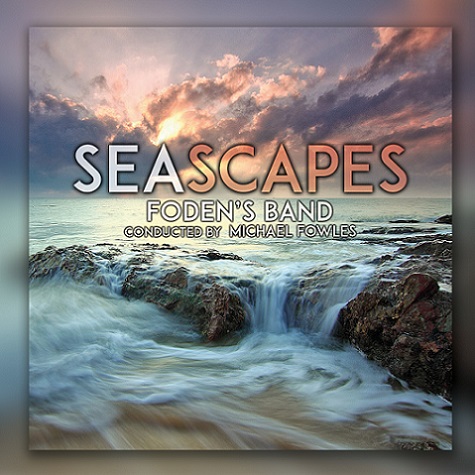

For far too long ‘James Cook, Circumnavigator’ has been reduced in compositional stature.
Written in the last months of Gilbert Vinter’s life to mark the bicentenary of Cook’s first expeditionary voyage of 1769, he never heard it played: By the time the commission was used at the 1970 New Zealand National Championships he was dead.
‘Spectrum’ had by then already been used at the 1969 British Open (which he was too ill to adjudicate) – its iconic status assured despite the poisonous acrimony that greeted it. It wasn’t until 1974 that ‘James Cook’ was performed at Belle Vue. By then it seemed to be little more than a belated memorial.
Thankfully, Michael Fowles and Foden’s restore it with reinvigorated purpose - glorious in its pomp, character and drama, the hubristic tread of the imperial march leading Cook to his violent demise. It’s a stirring reappraisal of a work that has been cruelly underestimated. No longer.
Thankfully, Michael Fowles and Foden’s restore it with reinvigorated purpose - glorious in its pomp, character and drama, the hubristic tread of the imperial march leading Cook to his violent demise. It’s a stirring reappraisal of a work that has for far too long been cruelly underestimated.
True spirit
There is also a ship-shape saltiness to Robert Farnon’s ‘Un Vie de Matelot’ – another left underappreciated in far too many dry-dock contest breaker’s yards since its National Championship premiere in 1975.
Fowles evokes its true spirit; a sailor’s life of excitement and daring, soprano cutlass swipes and becalmed ocean horizons. The majestic close is all tricolour bluff and splendour.
The sounds of Britain’s global nautical trading empire seep through the writing in Ray Steadman-Allen’s under-rated ‘Seascapes’; from the exotic cargos brought to port from ‘distant Ophir’ and the ‘palm-green shores’ of the Tropics, to the chugging labours of Tyneside coal carrying collier ships.
It is an atmospheric blend of richly coloured timbres. You can almost smell the spices floating in the air over sweaty backed stevedores.
It is an atmospheric blend of richly coloured timbres. You can almost smell the spices floating in the air over sweaty backed stevedores.
High class artistry comes with Gary Curtin’s lucid appreciation of Nigel Clarke’s ‘The City of the Sea’ – a ghostly interpretation of an Edgar Allen Poe poem that leaves a chill fever of admiration in the bones, whilst Howard Snell’s mastery of brass band scoring is revealed in all its inventive beauty in Debussy’s ‘The Submerged Cathedral’.
Heroic tragedy
An outstanding recording is completed by the telling sense of heroic tragedy that underpins Simon Dobson’s ‘Penlee’, and which draws the listener into a tempest of emotions.
It remains impossible to measure the sacrifice made by the brave souls of the Solomon Browne lifeboat, forlorn in personal hope as they battled in vain to save the lives of those on board the stricken Union Star ship at Christmas 1981.
The maturity of the writing is remarkable, never loosening its grip on your senses – the final, deeply respectful quote from Eric Ball’s ‘Resurgam’ as tender as it is heartfelt.
Iwan Fox
To purchase:
CD: https://www.worldofbrass.com/101943
Download: https://www.worldofbrass.com/101943-download
Play list:
1. James Cook, Circumnavigator (Gilbert Vinter)
2. The City in the Sea (Nigel Clarke)
Soloist: Gary Curtin
3. Seascapes
i. Allegretto – Allegro Furioso – Presto
ii. In Stilo di Sarabande
iii. Allegro – Tranquillo – Allegro Robusto
6. The Submerged Cathedral (Debussy arr. Howard Snell)
7. Penlee (Simon Dobson)
8. Un Vie de Matelot (Robert Farnon)









